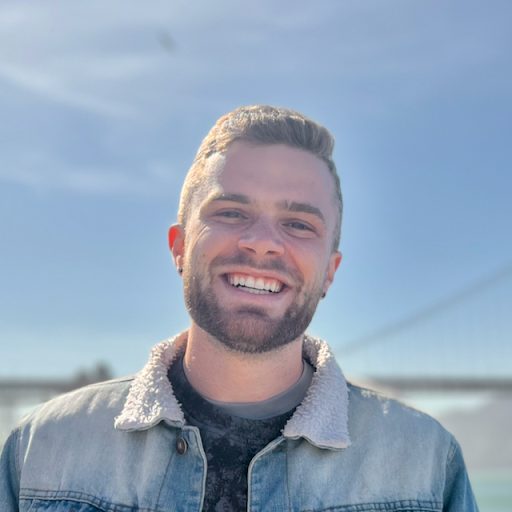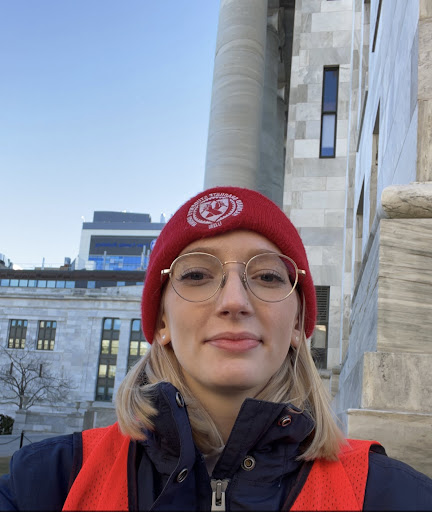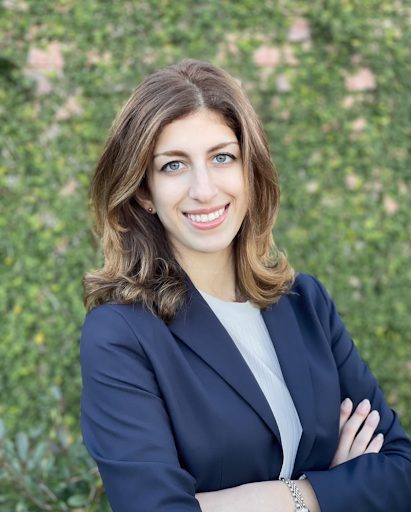Graduate students have increasingly demanded greater opportunities to engage with communities and provide their service to the public. Additionally, students understand the changing demands of career development and acknowledge the benefits of practicing what they learn in the classroom out in the real world. This summer’s Civic Science Clinic (CSC) provided 5 graduate students a 10-week part-time experiential learning opportunity in either the Massachusetts State House or in Boston-based community organizations, including Fenway Health, Eastie Farm, and Essential Partners.
Students’ summer projects spanned topics of enhancing community dialogue, evaluating healthcare policies, and crafting legislation for internet privacy, showcasing their commitment to making a meaningful impact. Students contributed by:
- Conducting a literature review and preliminary analysis of a community survey to understand the impacts of COVID-19 on vulnerable populations in Boston [Fenway Health]
- Contributing to grant writing and developing policy workshops on climate, energy, and food policy [Eastie Farm]
- Producing a synthesized report based on research, community interviews, and a comprehensive literature review that provided valuable insights for future community dialogue initiatives [Essential Partners]
- Evaluating the healthcare and childcare in Western Massachusetts and providing a set of recommendations for healthcare policy in the region [Sen. Paul Mark – Massachusetts State House]
- Surveying national internet privacy models and engaging with privacy advocates in order to inform future Massachusetts state legislation [Sen. Michael O. Moore – Massachusetts State House]
FELLOWS SPOTLIGHT
Michael Cork / Fenway Health
My fellowship at Fenway Health centered around conducting a literature review to supplement a report on the effects of COVID-19 on Boston’s vulnerable populations, especially those served by Fenway Health. Additionally, Fenway Health carried out a community survey to gauge the pandemic’s experiences and impacts across diverse Boston communities. I conducted a preliminary analysis of these data, interpreting the findings. Beyond this core work, my fellowship offered a variety of experiences: from participating in training sessions about the role of kink in healthcare to attending significant events like the trans liberation march and observing the Fenway Pride committee as they readied for their July events. I owe immense gratitude to my mentor and supervisor, Adrianna Boulin, the Director of Community Impact and Engagement at Fenway Health. Her steadfast support and guidance played a crucial role in enabling me to harness my skills in ways that benefited both my growth and Fenway Health’s objectives.


Rachel Petherbridge / Massachusetts State House
In the office of Sen. Paul Mark at the Massachusetts State House, I focused on providing the office with a comprehensive understanding of the healthcare needs in the Senator’s district, covering all of Berkshire county and parts of Hampden, Franklin and Hampshire. In order to do this, I conducted about a dozen interviews with public health officials and State House representatives on what they saw were the most pressing issues in the populations they served. With these interviews and additional research from hospital Community Health Needs Assessments, I prioritized the health needs in the district and provided a comprehensive set of recommendations to the office on next steps to address those health needs. This work improved my understanding of how the Massachusetts government functions, and allowed me to refine my communication skills for a non-scientific audience.
Layla Araiinejad / Eastie Farm
At Eastie Farm, I worked on a wide range of projects, but the main focuses were on grant writing and education. Through the education work, I was able to create several policy workshops for the high school students who were working at the farm over the summer. The workshops were on a wide range of topics including Climate Policy, Low Carbon Energy Technology, and Food policy. Additionally, I developed elementary climate education classes to teach through their elementary education programs which are partnered with schools in east Boston. Through this experience, I gained a lot of teaching and communication experience. Especially through teaching, I was able to practice communicating my technical research to non-technical audiences, and what I have learned through this fellowship is the importance of having community input within the research process.

Contact SCi if you are a student interested in becoming part of the next fellows class or you are a host organizing interested in participating in the fellowship program.
